![Best Selling RPGs: Ultimate List Ranked by Revenue [2024] Best Selling RPGs: Ultimate List Ranked by Revenue [2024]](https://data40.com/wp-content/uploads/2024/03/twitter-4.jpg)
In the dynamic world of video gaming, strategy games have carved out a significant niche, captivating audiences with their intricate gameplay and compelling narratives. This article delves into the top 15 strategy video games that have not only dominated the market but have also set new benchmarks in the gaming industry in terms of revenue and downloads. From groundbreaking innovations to strategic marketing maneuvers, we uncover what makes these games stand out and why they continue to be a staple in the collections of gaming aficionados around the globe.
| Rank | Game | Genre | Developer | Publisher | Platform | Release Date | Sales |
|---|---|---|---|---|---|---|---|
| 1 |  Clash of Clans Clash of Clans | Strategy | Supercell | Supercell | iOS, iPadOS, Android | August 2, 2012 | - |
| 2 | 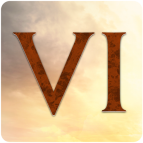 | Turn-based strategy, 4X | Firaxis Games | 2K, Aspyr Media (Mobile) | Windows, macOS, Linux, iOS, Nintendo Switch, PlayStation 4, Xbox One, Android | October 21, 2016 | > 8M units |
| 3 |  | DCCG | Blizzard Entertainment | Blizzard Entertainment | Windows, macOS, iOS, Android | March 11, 2014 | - |
| 4 |  | Tower defense, strategy | PopCap Games | Electronic Arts, PopCap Games | Microsoft Windows, macOS, iOS, Xbox 360, PlayStation 3, Nintendo DS, DSiWare, Android, Windows Phone, PlayStation Vita, BlackBerry Tablet OS, BlackBerry 10, Xbox One, PlayStation 4, Nintendo Switch, J2ME | May 5, 2009 | > 120M units |
| 5 |  | Real-Time Strategies | Blizzard Entertainment | Blizzard Entertainment | Microsoft Windows, macOS | July 27, 2010 | >6M Units |
| 6 |  | Turn-based strategy, real-time tactics | Creative Assembly | Sega | Linux, macOS, Windows | May 23, 2019 | 3.6 M Units |
| 7 | 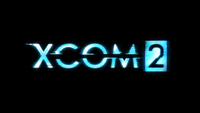 | Turn-based tactics, tactical role-playing | Firaxis Games | 2K | Linux, OS X, Windows, PlayStation 4, Xbox One, Nintendo Switch, iOS, Android | February 5, 2016 | - |
| 8 |  | Real-Time Strategy | Relic Entertainment | Sega, Feral Interactive | macOS, Microsoft Windows, Linux | June 25, 2013 | 7.6M Units |
| 9 |  | DCCG | CD PROJEKT RED | CD PROJEKT RED | Windows, PlayStation 4, Xbox One, iOS, Android, macOS | 23 October 2018 | - |
| 10 |  | MOBA | Riot Games | Riot Games | Microsoft Windows, macOS | October 27, 2009 |
10 Best Selling Strategy Video Games

Each stripe on the graph now displays the corresponding revenue amount above it, providing a clear and immediate understanding of the financial success each strategy video game has achieved.
1. Clash of Clans
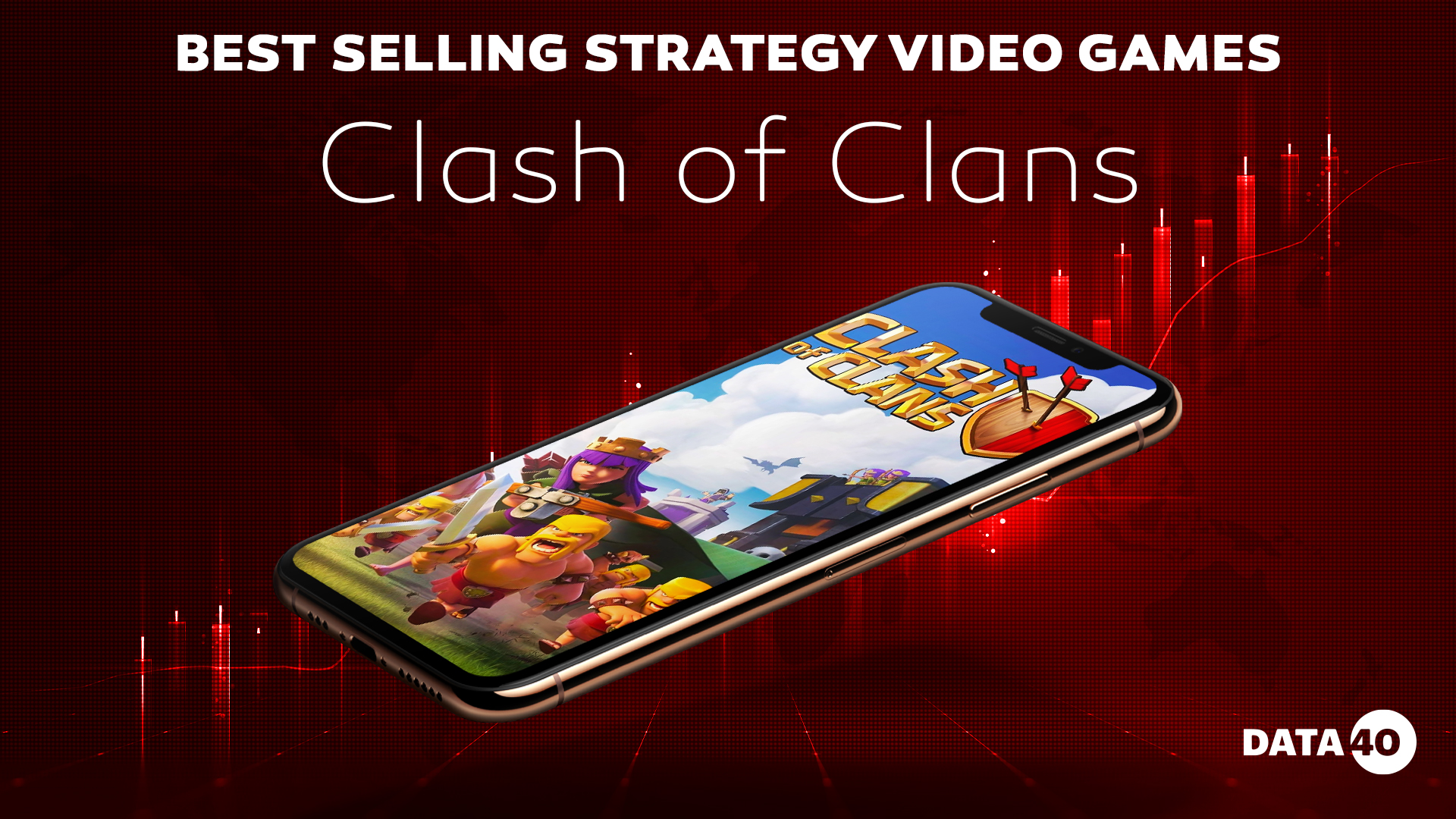
- Developer: Supercell
- Release Date: August 2, 2012
- Revenue: Over $7 Billion
- Downloads: 500 Million+
Clash of Clans revolutionized mobile strategy gaming with its addictive blend of base building, clan warfare, and strategic combat. Developed by Finnish game studio Supercell, it quickly ascended the ranks to become one of the highest-grossing mobile games of all time. The game’s premise is simple yet captivating: players construct and expand their village, train troops, and attack others to gain resources, all while defending their own bases. The introduction of Clan Wars, where players join forces to take on others, added a communal and competitive layer that significantly contributed to its popularity.
Supercell’s marketing genius shone through captivating advertisements, celebrity endorsements, and a strong social media presence, which played pivotal roles in its widespread adoption. The game’s freemium model, allowing free gameplay with optional in-app purchases, struck the perfect balance between accessibility and profitability. Regular updates, introducing new features and events, have kept the community engaged and loyal.
Awards such as the BAFTA in the Mobile and Handheld category in 2013, among numerous nominations, underscore its critical acclaim and influence.The game’s success can be attributed to its frequent updates, engaging community events, and a freemium model that balanced monetization with player enjoyment.
2. Sid Meier’s Civilization VI
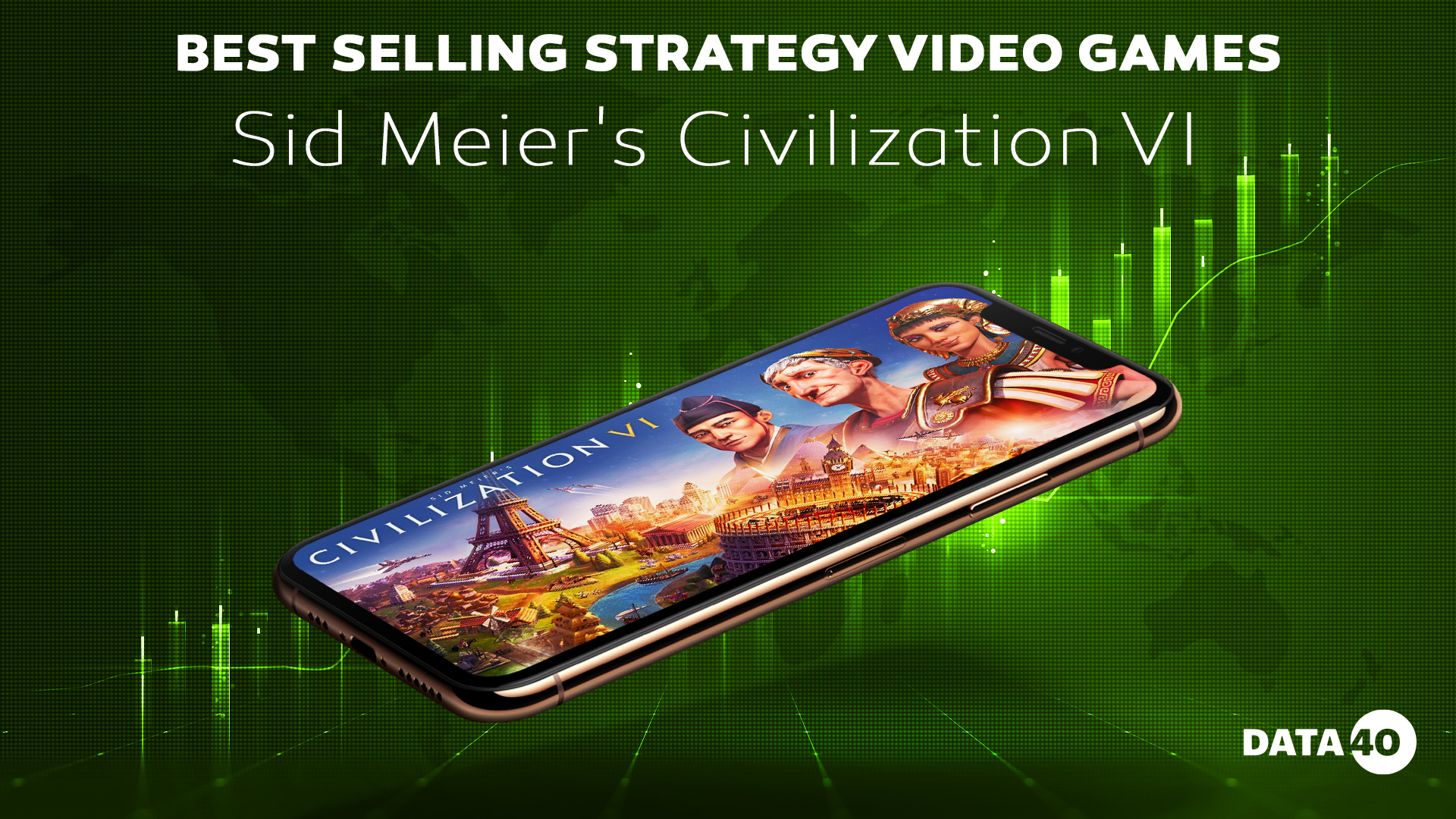
- Developer: Firaxis Games
- Release Date: October 21, 2016
- Revenue: Over $1 Billion
- Downloads: 5.5 Million+
Civilization VI is a testament to the enduring popularity of turn-based strategy games. Players embark on a journey through history, leading their civilization from the Stone Age to the Information Age, facing off against history’s greatest leaders. Its success lies in the deep strategic gameplay, a vast array of civilizations to choose from, and the dynamic diplomacy and warfare systems.
Civilization VI refined the series’ formula with innovations such as the district system, which brought new layers of strategy to city development. The game’s complexity is matched by its accessibility, inviting both veterans and newcomers to embark on a journey through time, leading their civilization from the dawn of mankind to the space age. Firaxis’s approach to promoting Civ VI was multifaceted, highlighting its new features and enhanced AI through engaging trailers and developer diaries. The game’s educational value, coupled with its deep strategic elements, has garnered a dedicated following.
The accolades received, including the Best Strategy Game award at The Game Awards 2016, and numerous nominations, such as the BAFTA Games Award for Best Game, reflect its critical and commercial success. Continuous expansion packs have enriched Civ VI’s world, introducing new scenarios, civilizations, and challenges that keep the global community engaged. Regular updates and expansions have kept the community engaged, with each adding new layers of complexity and historical scenarios that challenge even the most seasoned strategists.
3. Hearthstone
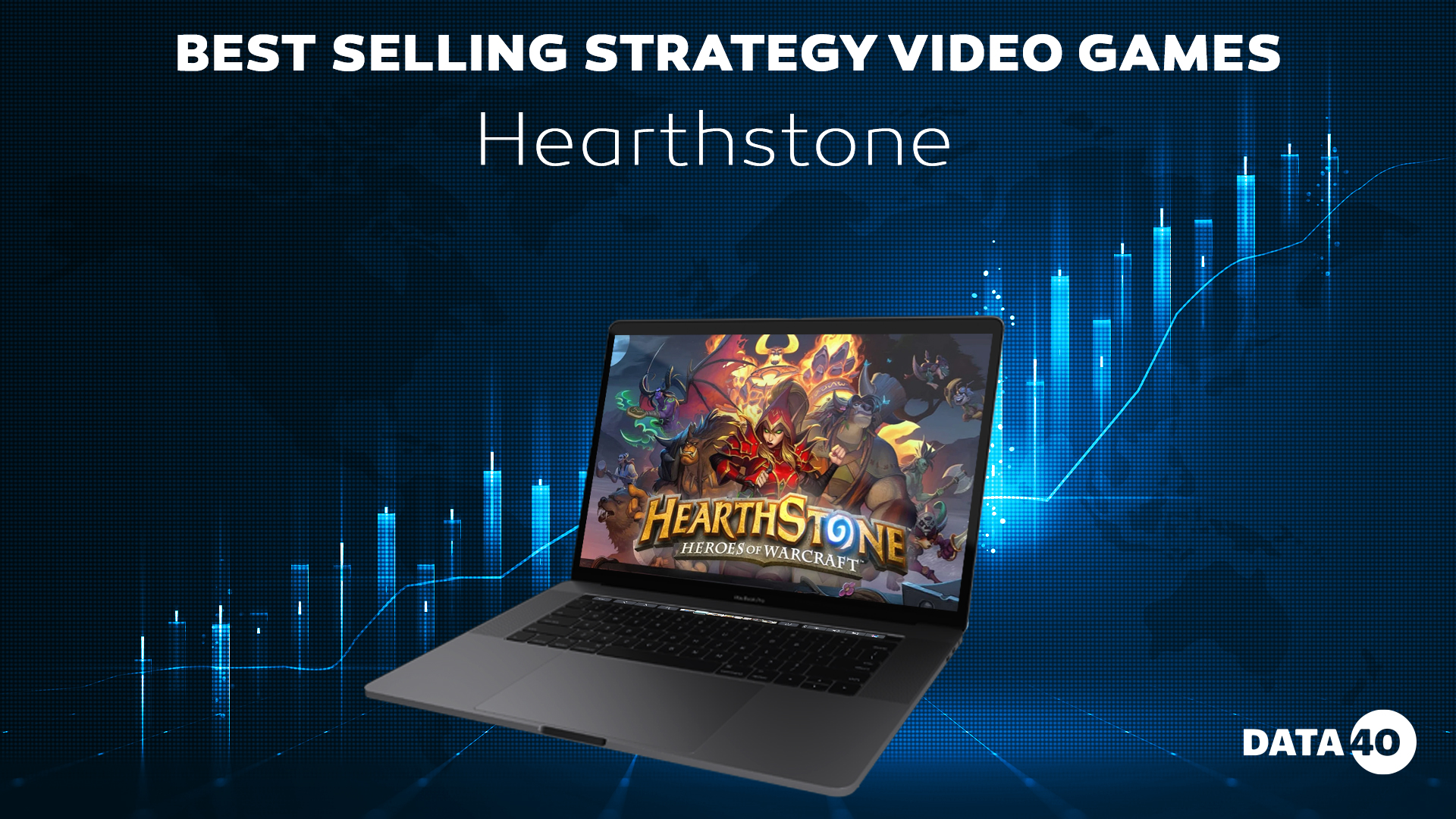
- Developer: Blizzard Entertainment
- Release Date: March 11, 2014
- Revenue: Over $1 Billion
- Downloads: 100 Million+
Blizzard’s foray into the collectible card game genre resulted in Hearthstone, a strategy card game set in the Warcraft universe. Its easy-to-learn but hard-to-master gameplay appealed to both casual gamers and competitive players. Hearthstone stands out with its intuitive gameplay that belies a deep strategic undercurrent. Players collect cards and build decks to battle others in a game of skill, strategy, and a hint of luck. The game’s success is buoyed by Blizzard’s legendary Warcraft franchise, tapping into an already vast fan base and drawing players into its captivating card duels.
Blizzard’s promotional strategies, leveraging the Warcraft legacy and engaging the community through tournaments and events, have been instrumental in Hearthstone’s growth. The game’s free-to-play model, supported by microtransactions for card packs and expansions, has made it accessible to a broad audience. The vibrant eSports scene and community-driven events have fostered a loyal player base, making Hearthstone one of the most successful digital card games in the world.
Hearthstone’s numerous awards, including the BAFTA for Best Multiplayer Game and nominations for Game of the Year, underscore its impact on the gaming landscape. Regular expansions and updates have kept the meta-game dynamic, ensuring that Hearthstone remains a staple in the digital card game genre.
4. Plants vs. Zombies
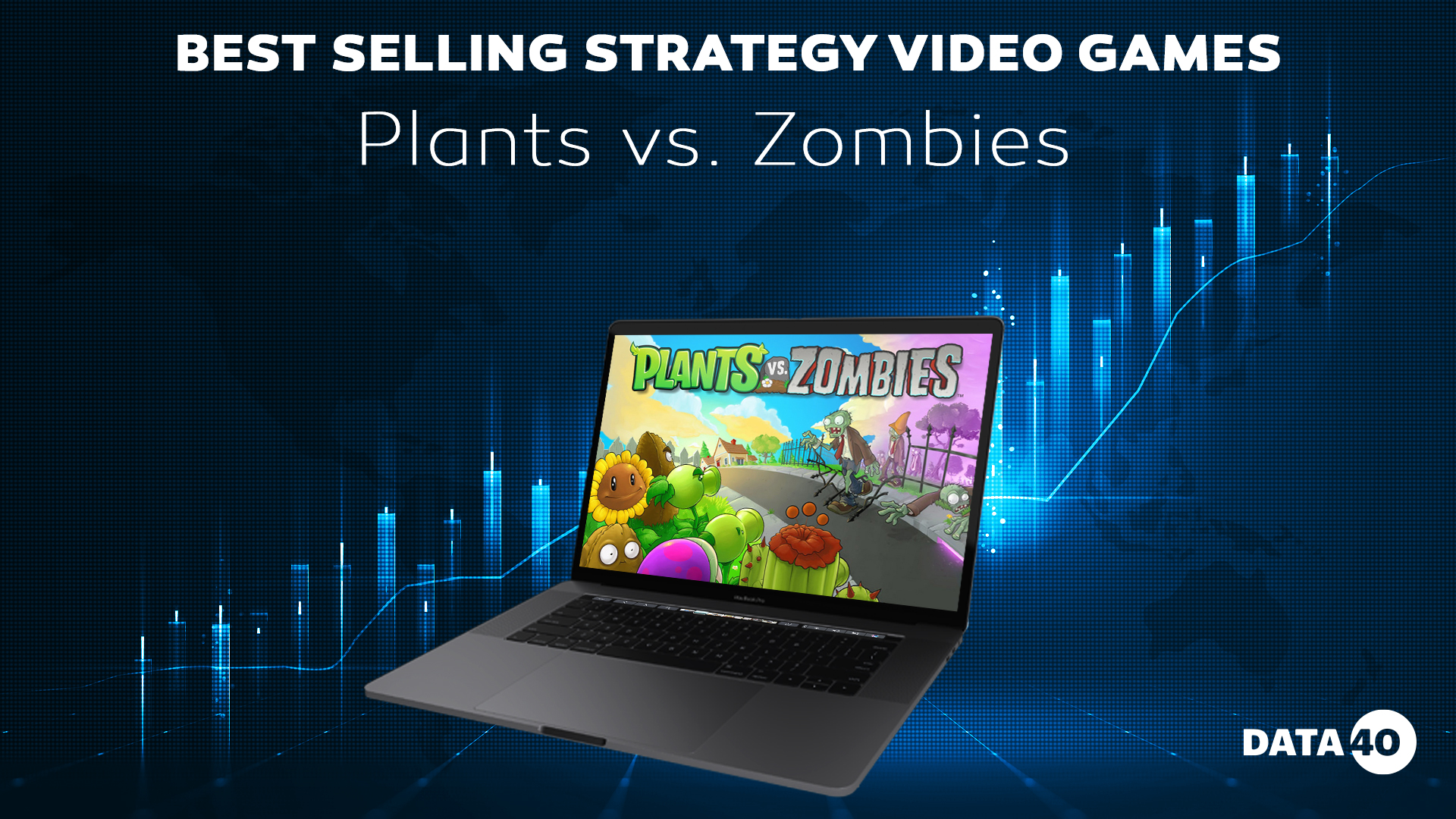
- Developer: PopCap Games
- Release Date: May 5, 2009
- Revenue: Over $1 Billion
- Downloads: 100 Million+
Plants vs. Zombies brought a new twist to the tower defense genre, with its quirky humor, unique characters, and innovative gameplay. Players defend their garden against an onslaught of zombies using an arsenal of anthropomorphic plants, each with its own unique abilities. The game’s premise is deceptively simple: players use a variety of plants with unique abilities to defend their home from an onslaught of quirky zombies.
PopCap employed a grassroots marketing approach, leveraging word of mouth, social media, and positive press reviews to propel the game’s popularity. Its accessible gameplay, coupled with an increasing level of challenge and strategy, made it a hit across a wide demographic.
The charm of Plants vs. Zombies lies in its character design, innovative gameplay mechanics, and the gradual introduction of new plants and zombies that require players to constantly adapt their strategies. The game has received numerous awards, including the Casual Game of the Year from the Academy of Interactive Arts & Sciences in 2010, and has been nominated for several others, highlighting its impact on the gaming industry and its lasting appeal across various platforms.
5. StarCraft II: Wings of Liberty
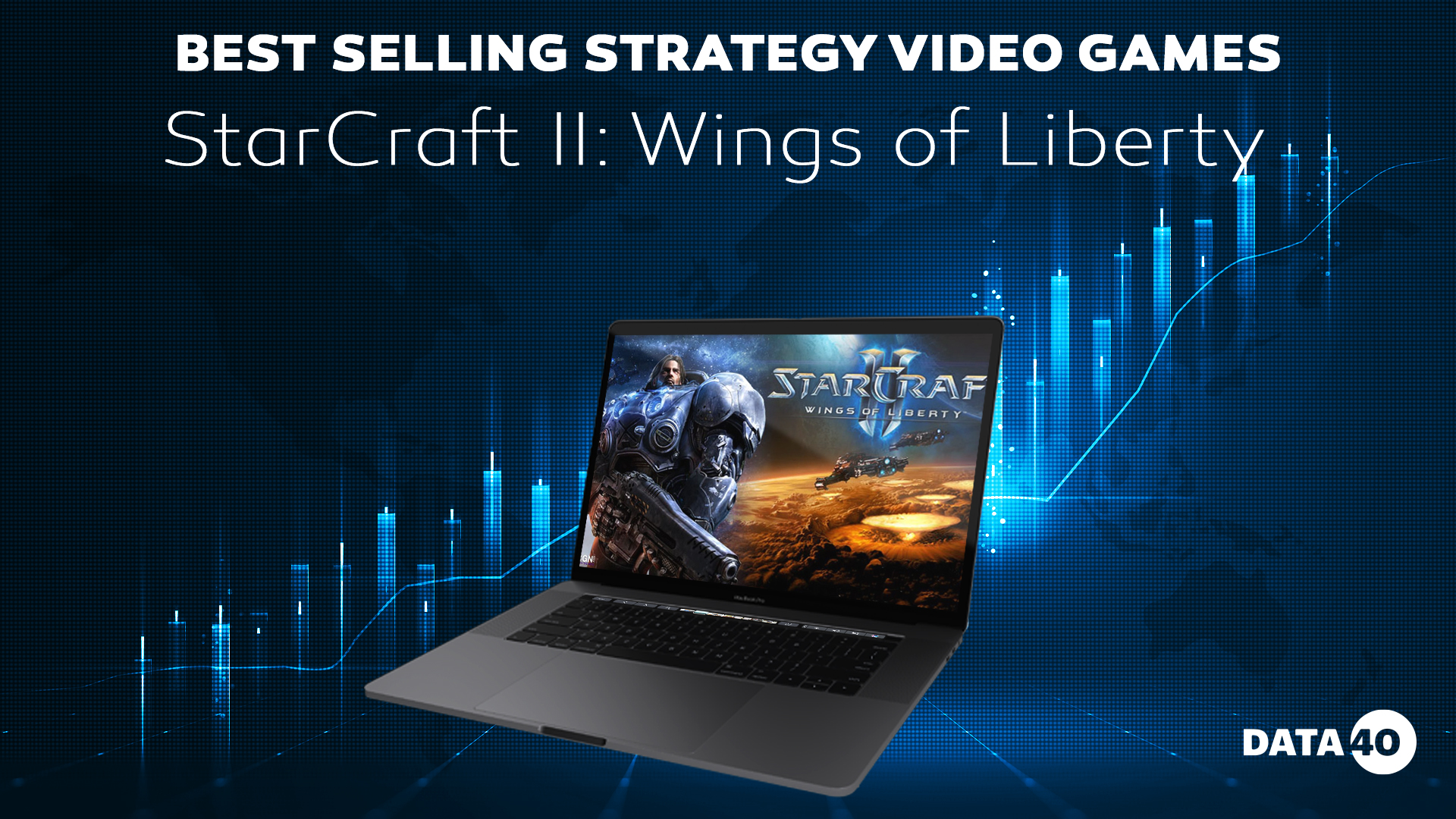
- Developer: Blizzard Entertainment
- Release Date: July 27, 2010
- Revenue: Estimated $500 Million
- Downloads: 6 Million+
StarCraft II continued the legacy of its predecessor, setting the gold standard for real-time strategy games. Set in a distant future, the game continues the interstellar conflict between the Terran, Zerg, and Protoss factions, offering players a deep, story-driven single-player campaign and a highly competitive multiplayer experience.
Blizzard’s promotional strategies were comprehensive, leveraging cinematic trailers, a strong presence at gaming conventions, and a beta testing phase that generated significant anticipation. The game’s success was also propelled by its inclusion in numerous eSports tournaments, which showcased its high skill ceiling and strategic depth.
StarCraft II’s popularity can be attributed to its balanced gameplay, intricate unit mechanics, and the seamless integration of multiplayer features, including ladder systems and custom games. The game received critical acclaim, earning awards like the Best PC Game at the 2010 Spike Video Game Awards and numerous nominations, including for Best Strategy Game. Its ongoing support, with major expansions such as “Heart of the Swarm” and “Legacy of the Void,” has kept the community active, further cementing its legacy in the gaming world.
6. Total War: Three Kingdoms
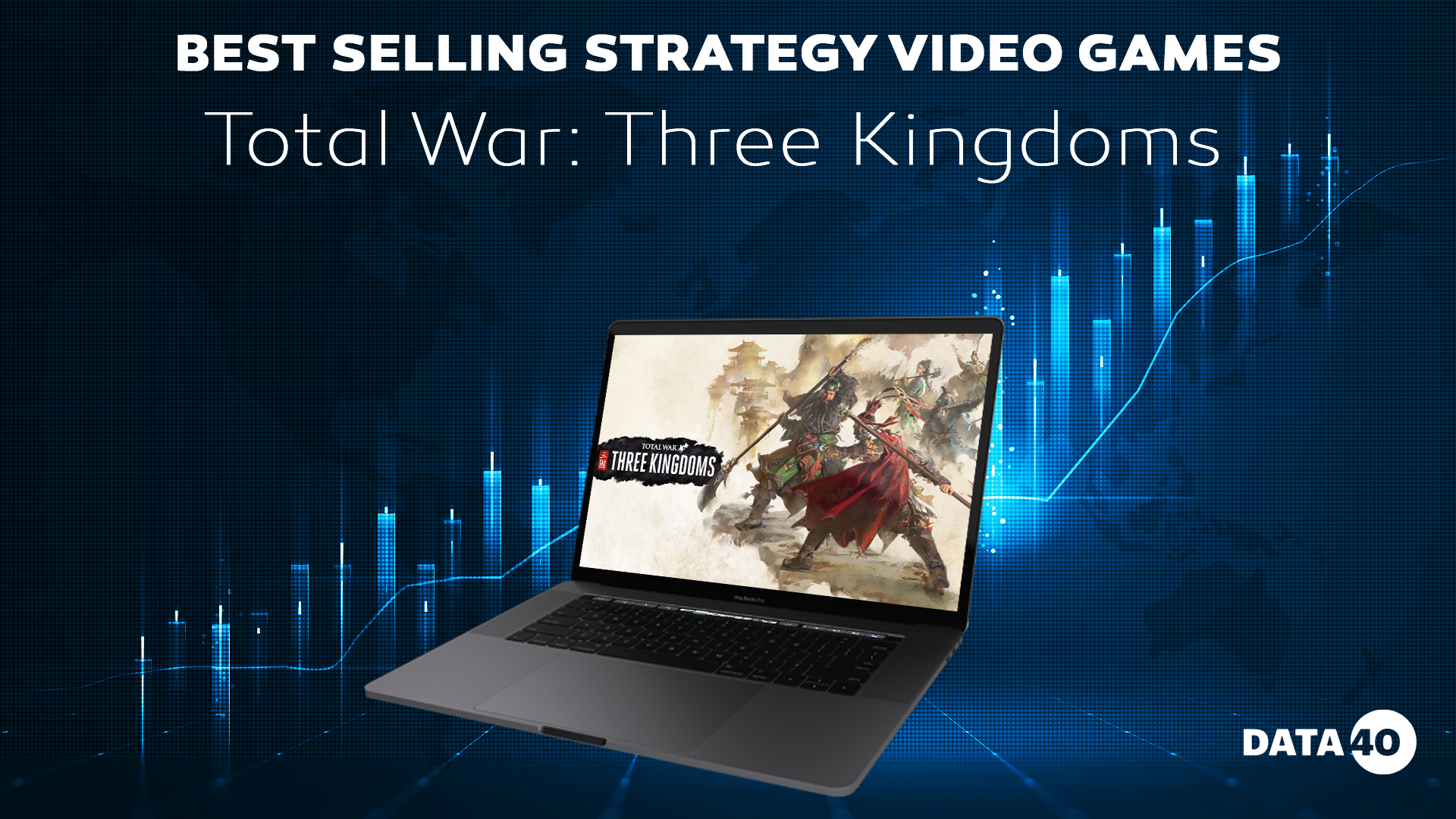
- Developer: Creative Assembly
- Release Date: May 23, 2019
- Revenue: $250 Million
- Downloads: 1 Million+ in the first week
Total War: Three Kingdoms merges grand strategy and real-time tactics in the backdrop of ancient China’s Three Kingdoms period. The game stands out for its epic battles, detailed diplomacy system, and the romanticization of historical figures, offering multiple narratives through its campaign.
Creative Assembly’s promotional efforts highlighted these features through engaging trailers, developer diaries, and early access streams that showcased the game’s depth and beauty. The addition of the “Romance” and “Records” modes, offering both a mythologized and a more historically accurate gameplay experience, appealed to a broad spectrum of strategy fans.
Three Kingdoms received widespread acclaim for its innovation in the strategy genre, with nominations for Best Strategy Game at The Game Awards 2019 and several other accolades. Its success is a reflection of Creative Assembly’s commitment to historical authenticity, complex strategic gameplay, and a narrative depth that immerses players in the tumultuous period of the Three Kingdoms.
7. XCOM 2
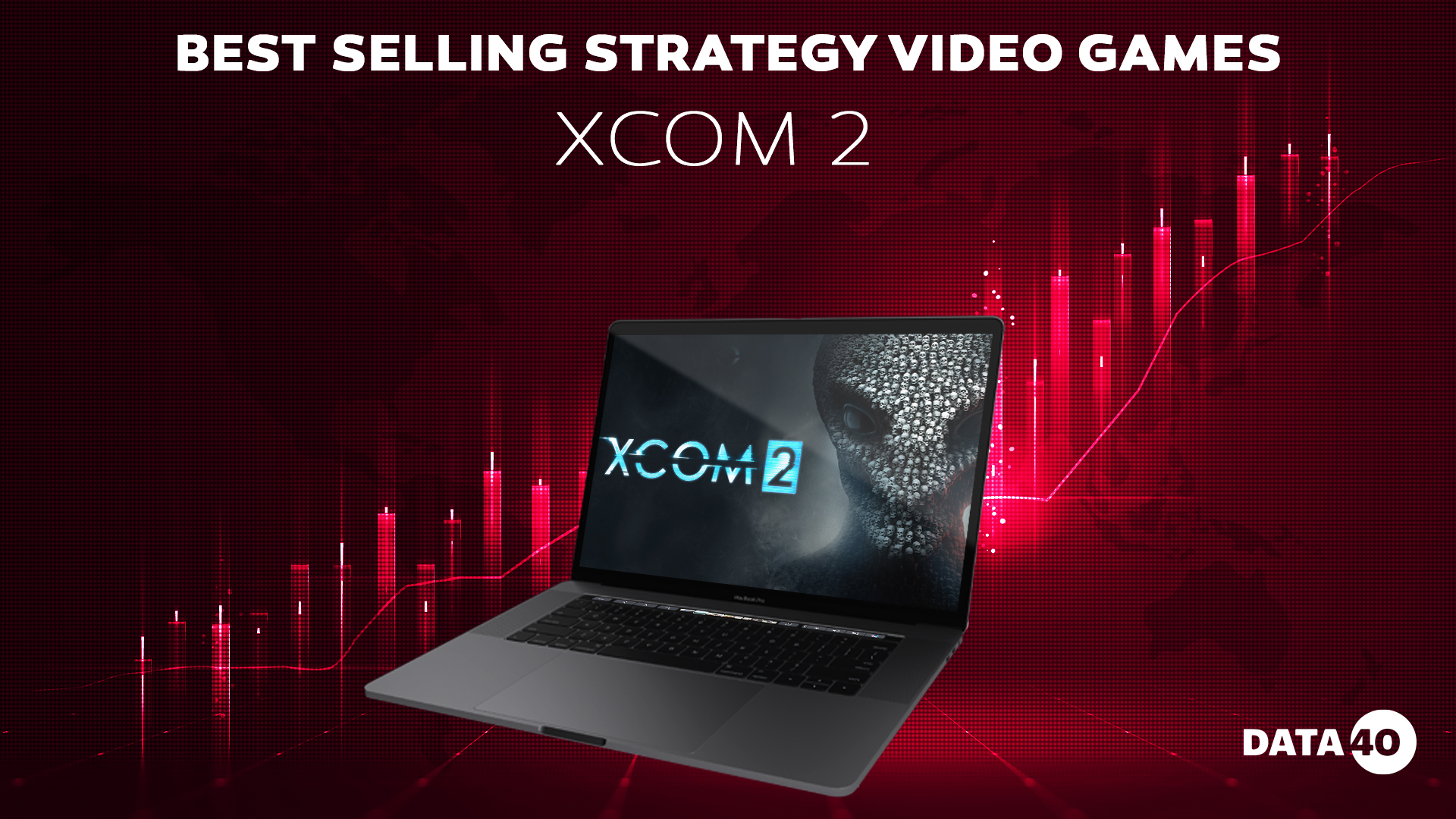
- Developer: Firaxis Games
- Release Date: February 5, 2016
- Revenue: $150 Million
- Downloads: 2 Million+
XCOM 2 builds on the foundation laid by its predecessor, offering a challenging turn-based tactical experience where players lead a guerrilla force against an alien occupation of Earth. As a sequel to the acclaimed XCOM: Enemy Unknown, it takes the narrative forward, placing players in a world where Earth has fallen under alien rule. The game challenges players to lead a guerrilla force, the remnant of XCOM, to overthrow the alien occupation, offering a blend of strategic base management and intense tactical combat missions.
Firaxis skillfully promoted XCOM 2 through a series of engaging trailers, developer diaries, and interactive social media campaigns, highlighting the game’s enhanced graphics, deeper strategic layers, and mod support, which significantly extended its replayability. The introduction of procedural generation for maps ensured that no two missions felt the same, keeping the gameplay fresh and unpredictable.
XCOM 2’s success is not just a testament to its gripping gameplay but also to the community that rallied around it, creating and sharing mods that added new dimensions to the experience. The game received critical acclaim, winning the award for Best Strategy Game at the 2016 PC Gamer Awards and receiving nominations for several others, including the Game Developers Choice Awards.
8. Company of Heroes 2
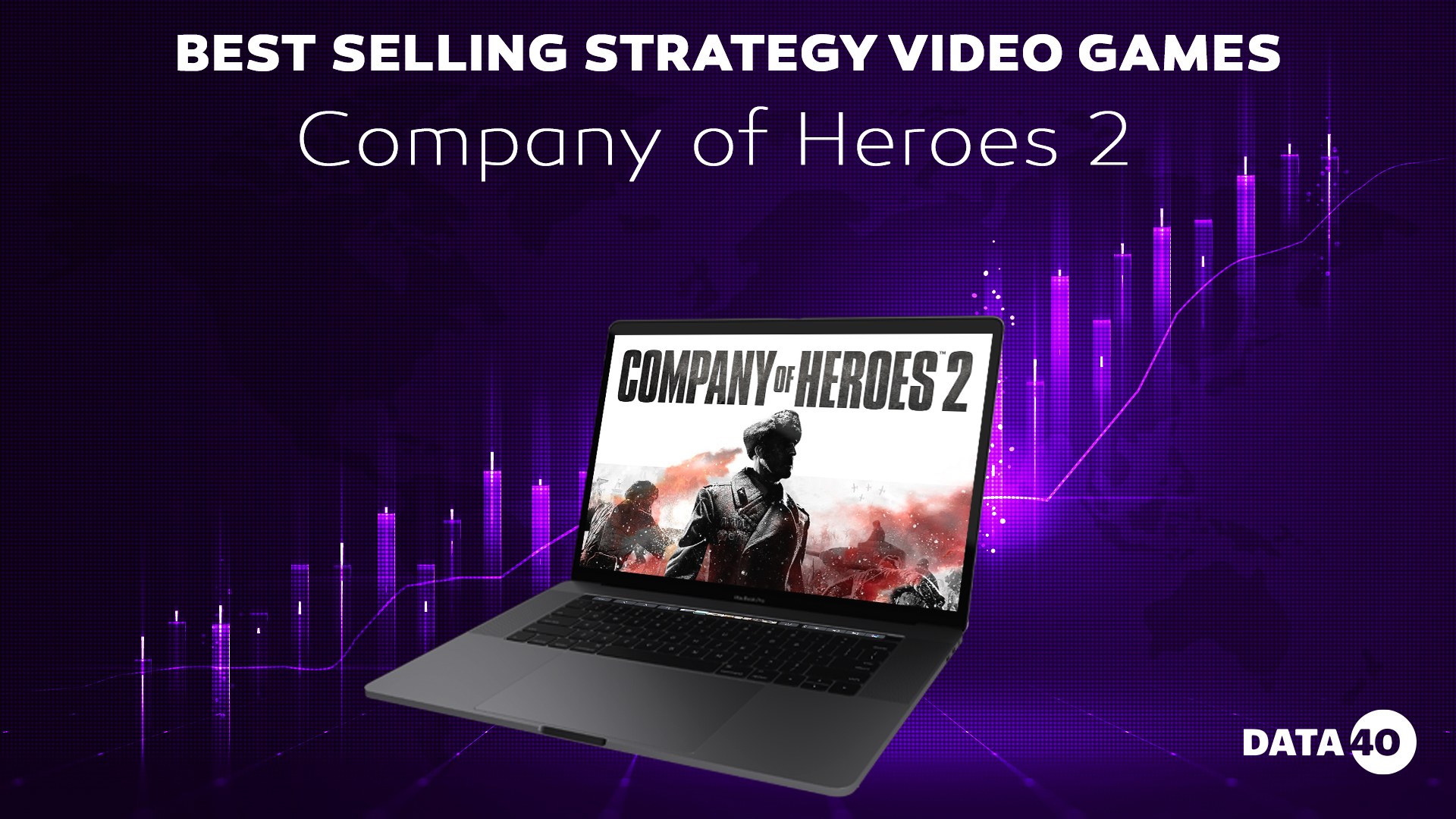
- Developer: Relic Entertainment
- Release Date: June 25, 2013
- Revenue: $100 Million
- Downloads: 1 Million+
Set against the backdrop of World War II’s Eastern Front, Company of Heroes 2 offers a mix of real-time strategy and tactical gameplay. Its TrueSight system, weather effects, and dynamic battlefields offer a realistic and immersive war experience. The game builds on the success of its predecessor by offering a more in-depth look into the brutality and complexity of the Eastern Front through its innovative TrueSight system, dynamic weather effects, and the emphasis on terrain in tactical decision-making.
Relic’s promotion of Company of Heroes 2 leaned heavily on its historical accuracy and strategic depth, appealing to both history buffs and hardcore strategy gamers. Interactive trailers, live-action sequences, and developer-led documentaries provided insights into the game’s development and the historical context it was set in, engaging the audience even before its release.
While Company of Heroes 2 sparked some controversy over its portrayal of the Soviet Union, its strategic gameplay, attention to detail, and the immersive experience it offered contributed to its popularity among gamers. The game garnered critical acclaim, receiving nominations for Best Strategy Game at various awards, including the 2013 Golden Joystick Awards.
9. Gwent: The Witcher Card Game
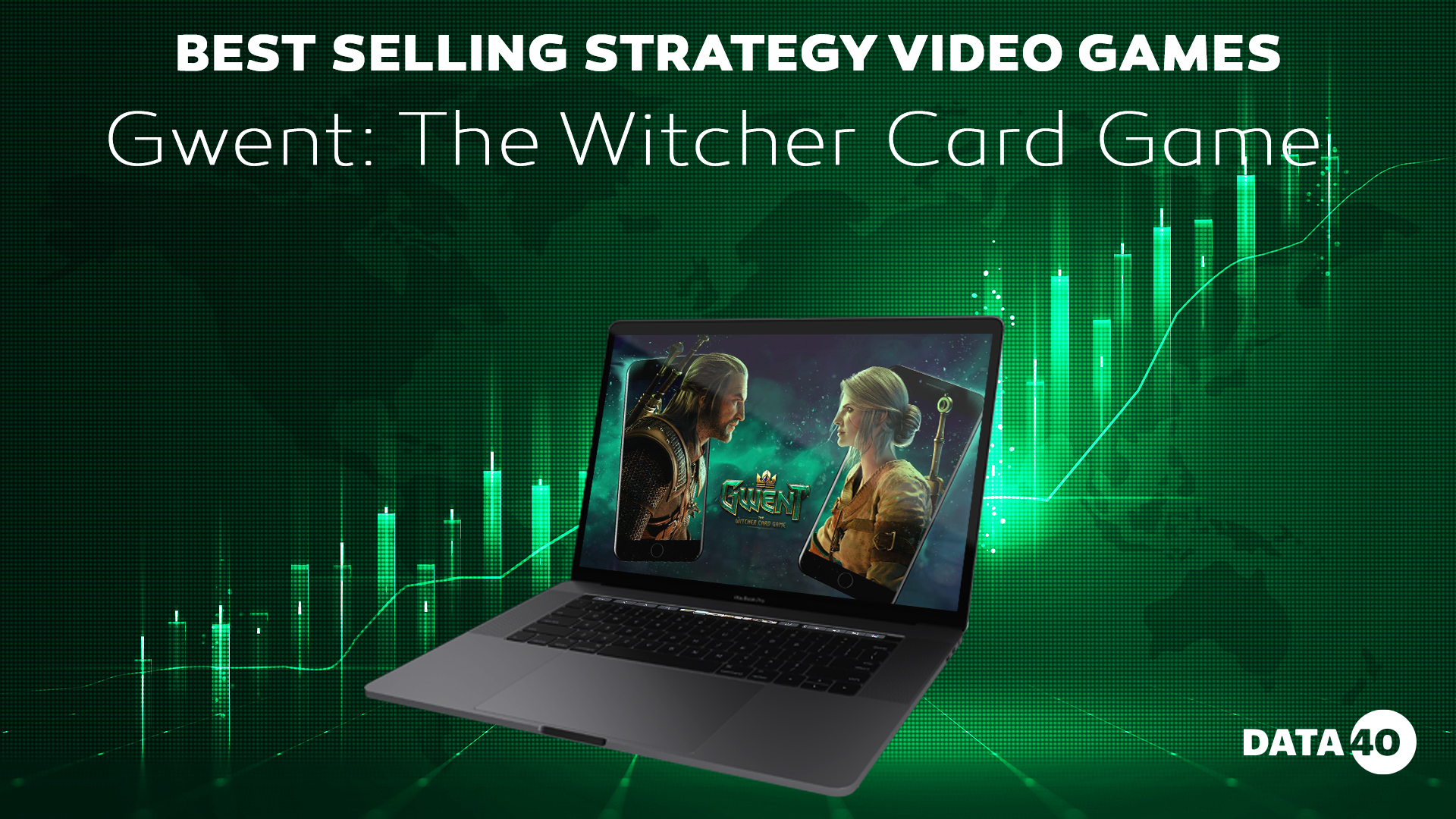
- Developer: CD Projekt Red
- Release Date: October 23, 2018
- Revenue: Estimated $50 Million
- Downloads: 10 Million+
Originally a mini-game within the critically acclaimed RPG, The Witcher 3: Wild Hunt, Gwent quickly gained popularity, leading to its development as a standalone title. CD Projekt Red’s promotion of Gwent capitalized on the immense popularity of The Witcher series, using characters and lore familiar to fans to draw them into the new game. Through open betas, engaging trailers, and community tournaments, Gwent quickly built a dedicated player base.
The game’s success lies in its strategic depth, the balance of cards representing characters, spells, and abilities, and the continuous support from the developers, who frequently update the game with new cards, mechanics, and balance changes. Gwent’s unique art style, drawing from the rich aesthetics of The Witcher universe, further sets it apart in the crowded card game market.
Gwent has been recognized for its innovation and design, receiving nominations for several awards, including the Best Strategy Game at The Game Awards 2018. Its evolution from a mini-game to a standalone title is a testament to CD Projekt Red’s commitment to quality and player experience.
10. League of Legends: Wild Rift
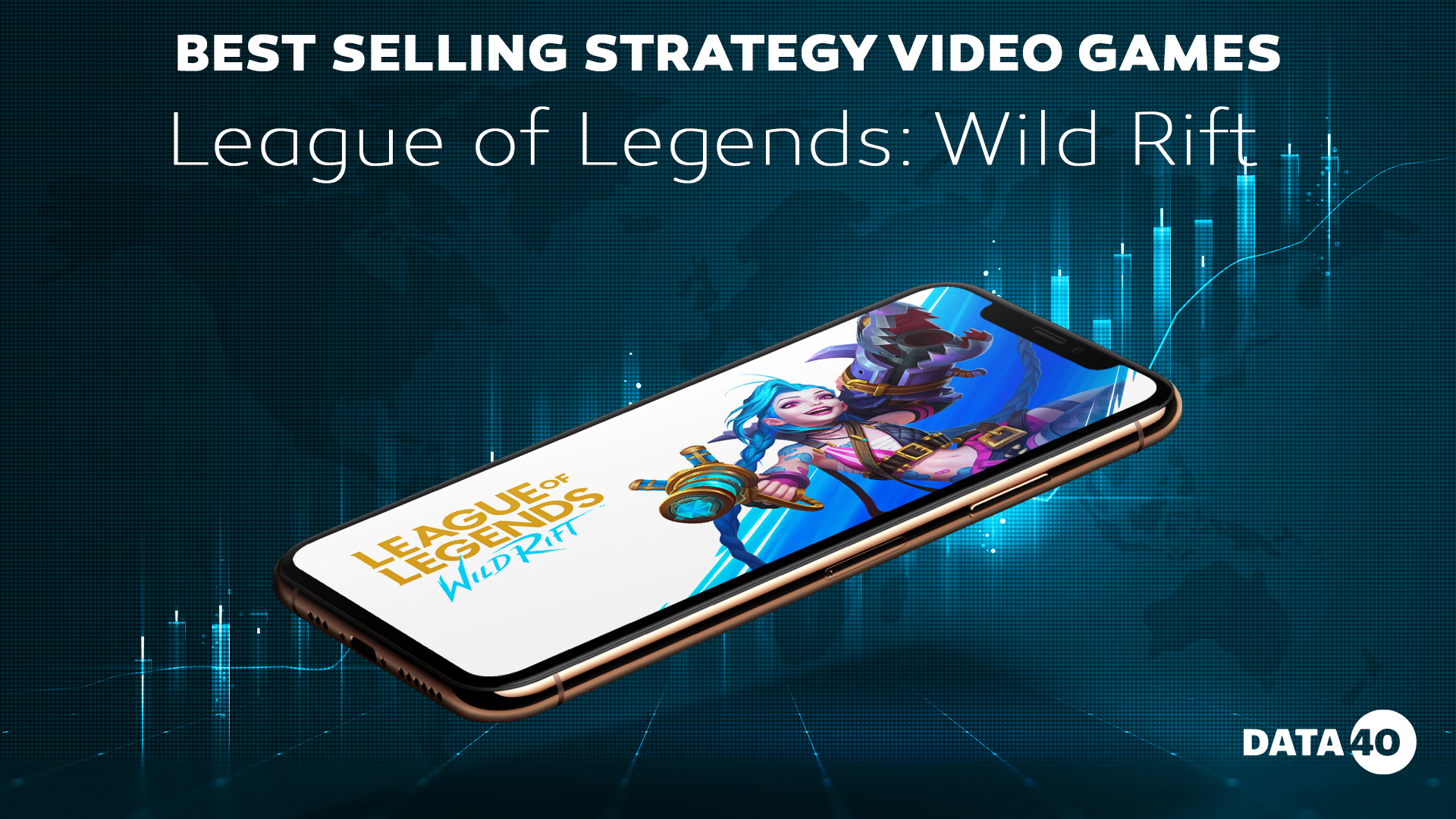
- Developer: Riot Games
- Release Date: October 27, 2020
- Revenue: $25 Million
- Downloads: 50 Million+ (Google Play Store & Apple App Store)
While primarily known as a MOBA, League of Legends: Wild Rift incorporates strategic elements that challenge players to think critically about team composition, resource management, and in-game decision-making. The game retains the 5v5 format, where players choose from an array of champions, each with unique abilities, to battle against the opposing team with the ultimate goal of destroying the enemy’s Nexus.
Riot Games’ promotional strategy for Wild Rift was multifaceted, leveraging the established League of Legends brand while highlighting the game’s mobile-friendly features through trailers, influencer partnerships, and extensive social media campaigns. Features such as the adapted control scheme for touchscreen and console controllers, shorter match durations, and a roster of champions tailored for mobile play have been pivotal in its popularity.
While Wild Rift is still in its nascent stages compared to its PC counterpart, its reception has been overwhelmingly positive, with accolades and nominations highlighting its successful adaptation of the MOBA genre for new platforms. Its growth reflects Riot Games’ commitment to expanding the League of Legends universe, promising a future filled with competitive play, community engagement, and content updates that will continue to shape its legacy.
Future Trends in Mobile Strategy Gaming
The landscape of mobile strategy gaming is perpetually evolving, with innovations and trends shaping the future of the genre. As we look ahead, several key developments stand poised to redefine what players expect from their gaming experiences:
- Augmented Reality (AR) Integration: With the success of AR games like Pokémon GO, it’s only a matter of time before strategy games harness AR technology to offer more immersive experiences. Imagine deploying troops or building your empire overlaid onto the real world through your smartphone’s camera.
- Cross-Platform Play: As seen with League of Legends: Wild Rift’s attempt to bridge the gap between PC and mobile/console gaming, the future will likely see more titles offering seamless cross-platform play. This will enable a unified gaming community, regardless of the device.
- Advanced AI and Machine Learning: AI’s role in gaming is set to become more sophisticated, providing not only challenging opponents but also personalizing the gaming experience based on the player’s style and preferences, making strategy games more engaging and replayable.
- Blockchain and NFT Integration: With the rising interest in blockchain technology and NFTs, strategy games may soon incorporate these elements for in-game assets ownership, ensuring unique and secure transactions of digital goods.
- Increased Emphasis on Community and Esports: The social aspect of gaming, particularly in strategy games, is crucial. We’ll likely see developers putting even more resources into building vibrant communities and supporting competitive esports ecosystems around their games.
FAQ
Mobile strategy games maintain and grow their player bases through continuous updates, engaging community events, and by listening to player feedback. Games like Wild Rift also leverage established franchises to draw in fans, ensuring a familiar yet fresh experience.
A successful mobile strategy game combines intuitive gameplay, compelling narratives, and social elements that encourage player interaction. Monetization strategies that balance player enjoyment with revenue, along with regular content updates, are also key factors.
While many traditional PC strategy games are exploring mobile adaptations, a full transition is unlikely. Each platform offers unique experiences suited to different audiences. However, cross-platform play and mobile versions of popular PC titles will continue to bridge the gap between these platforms.







